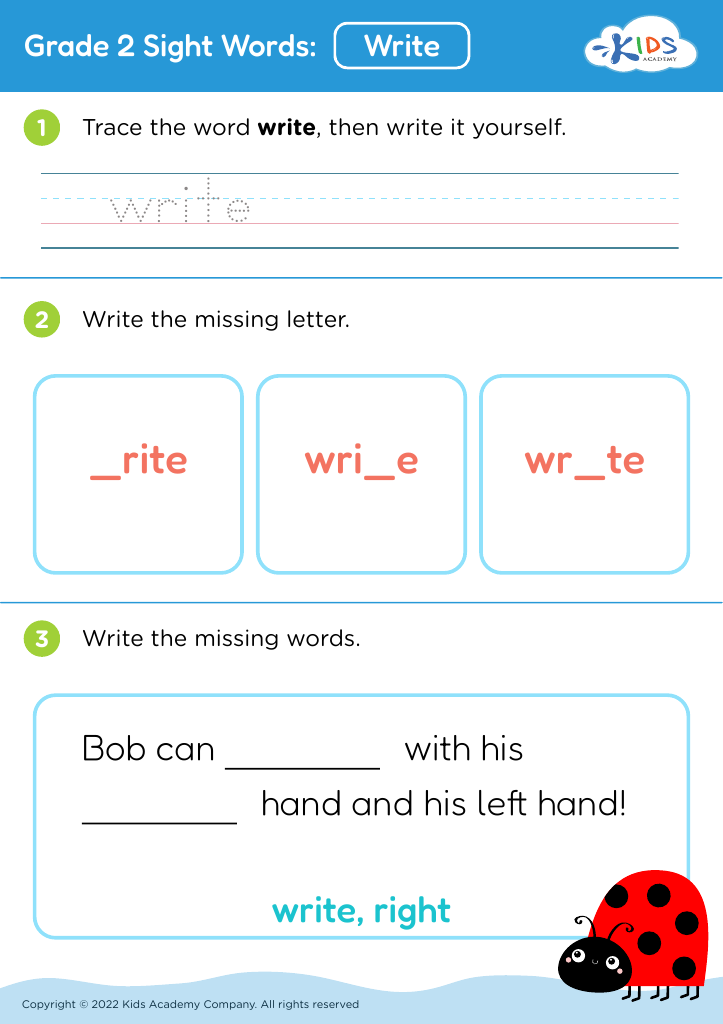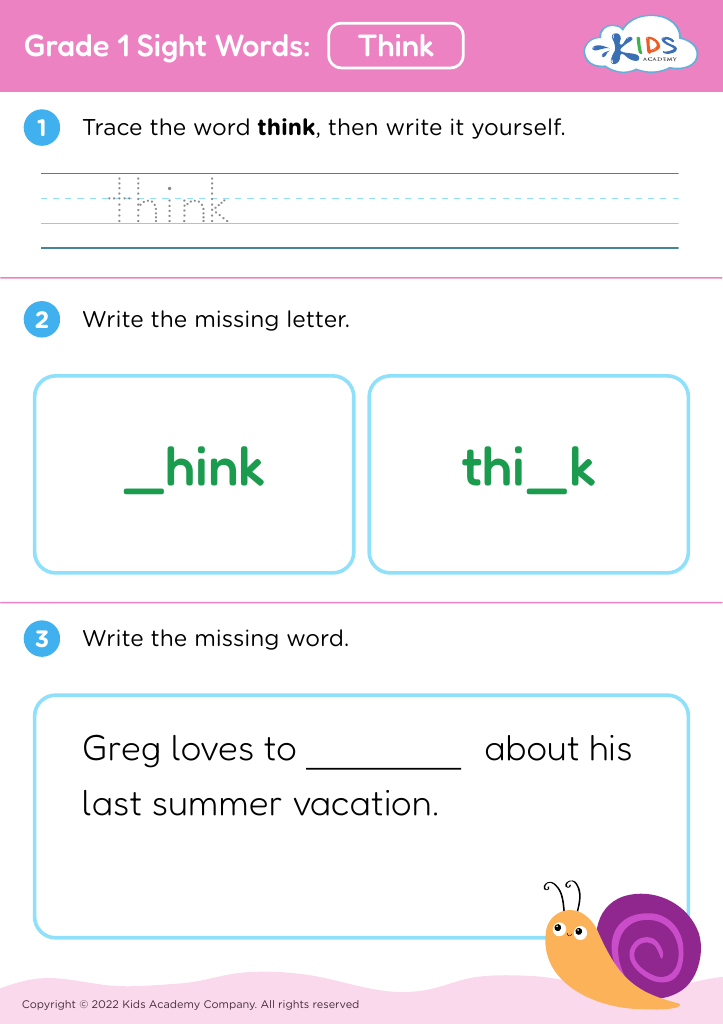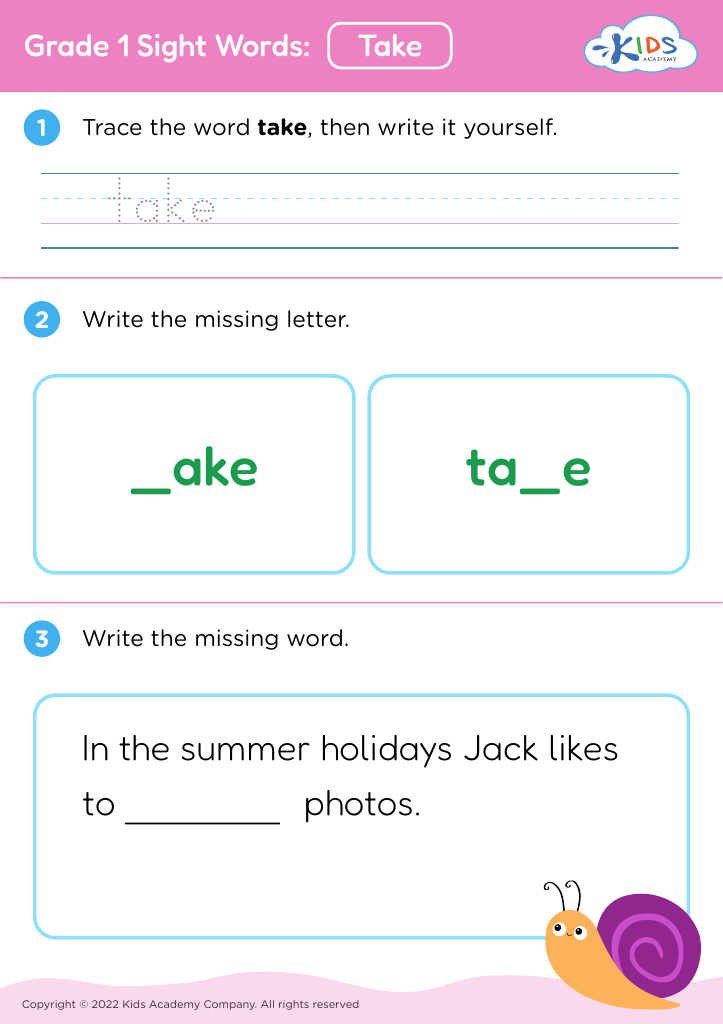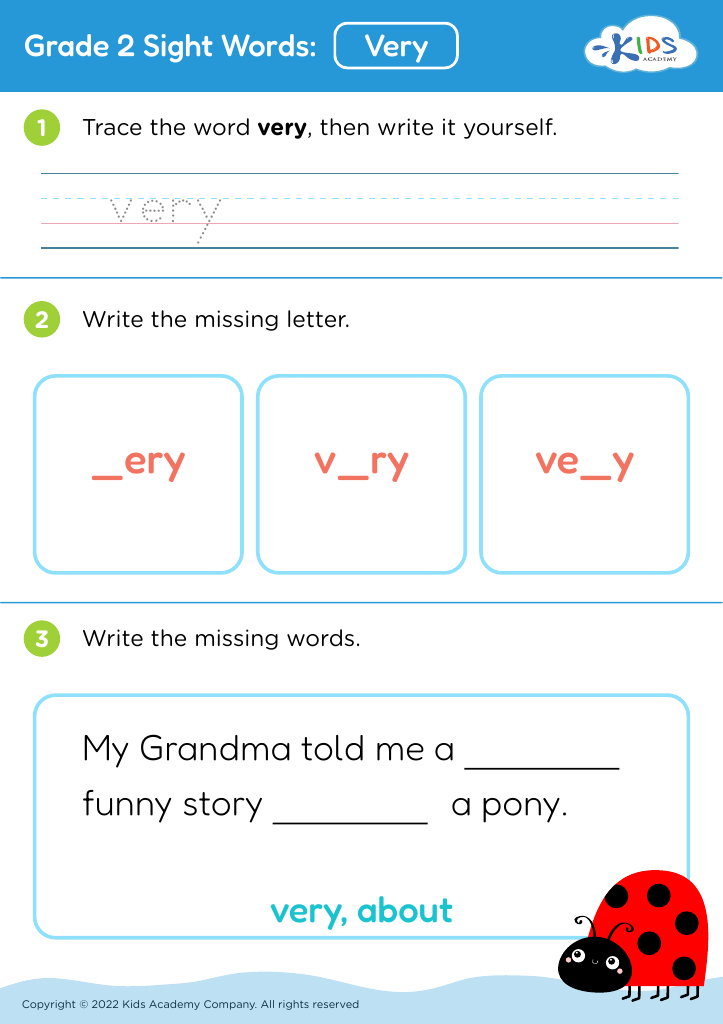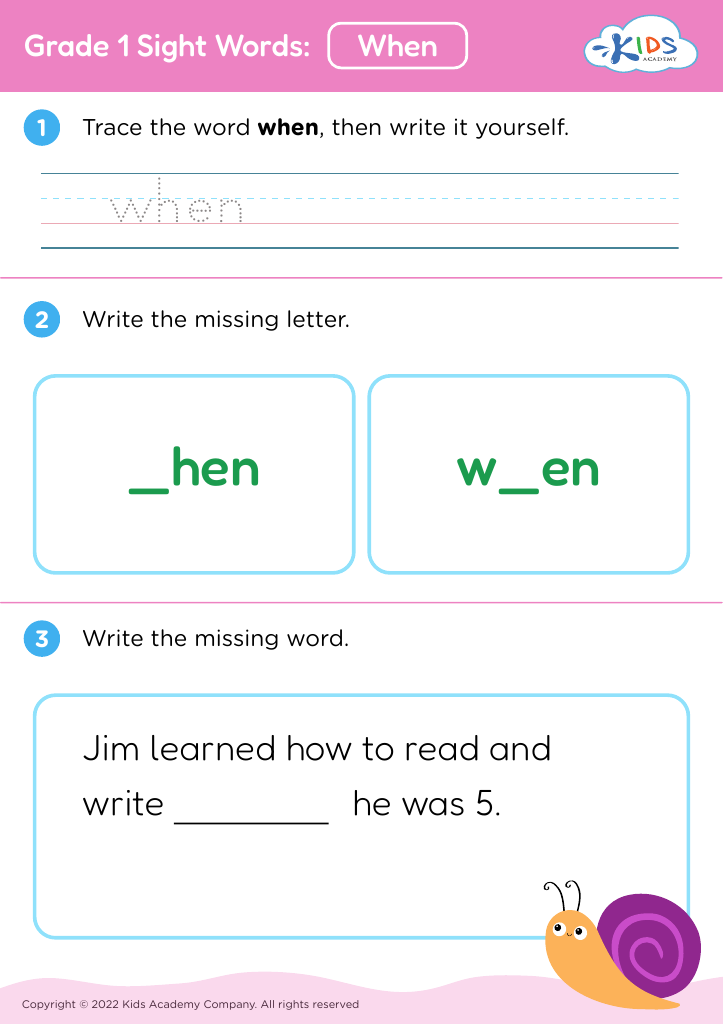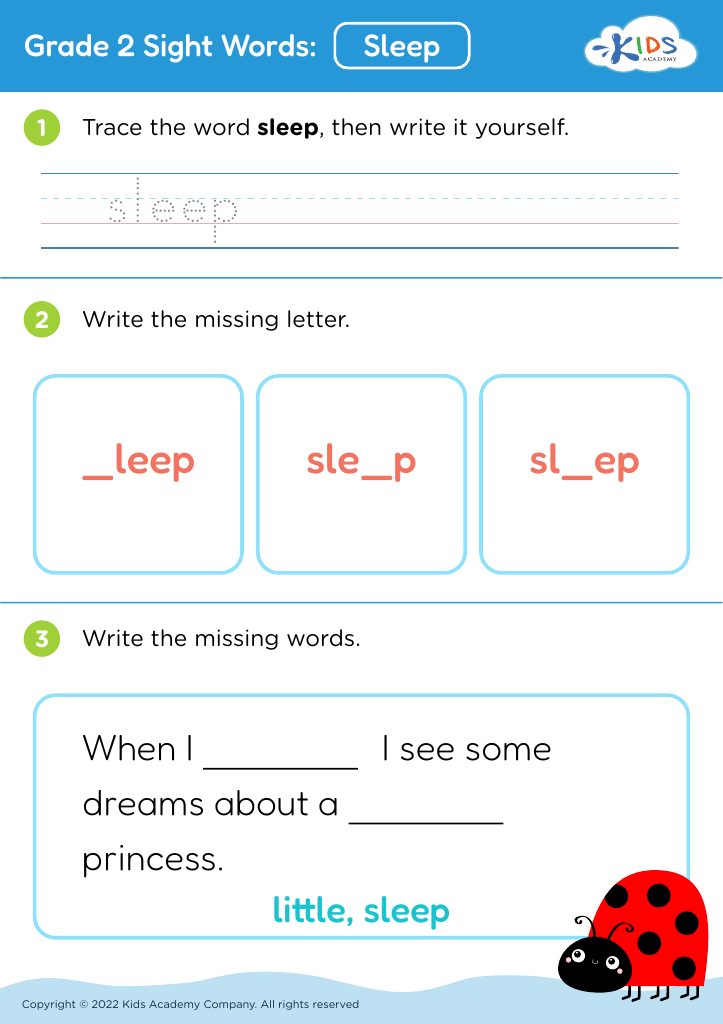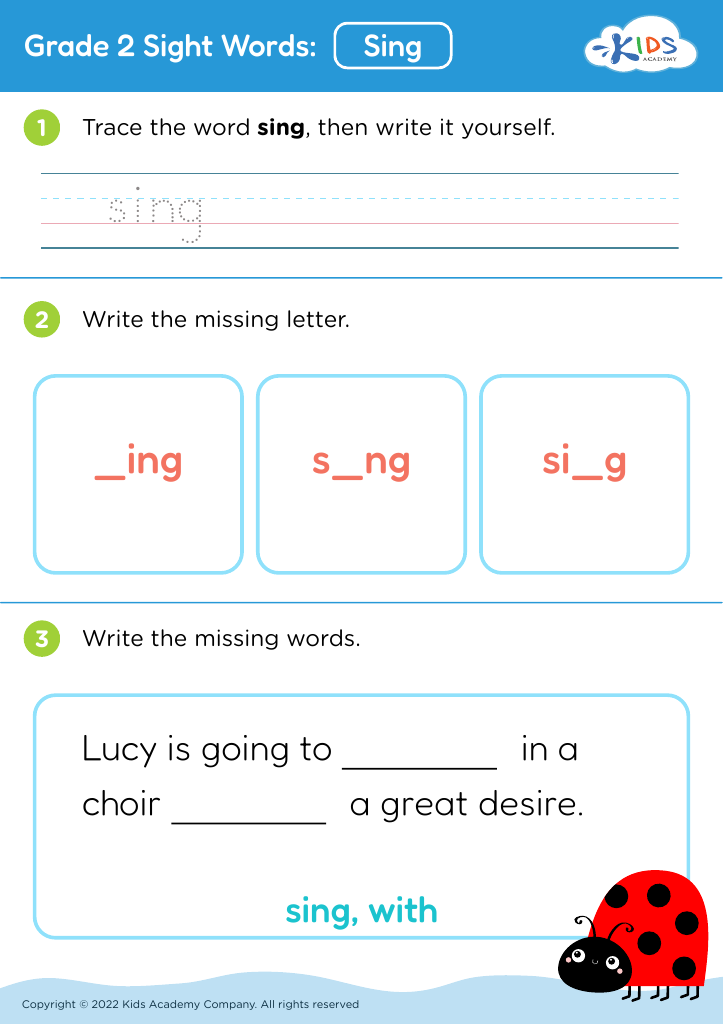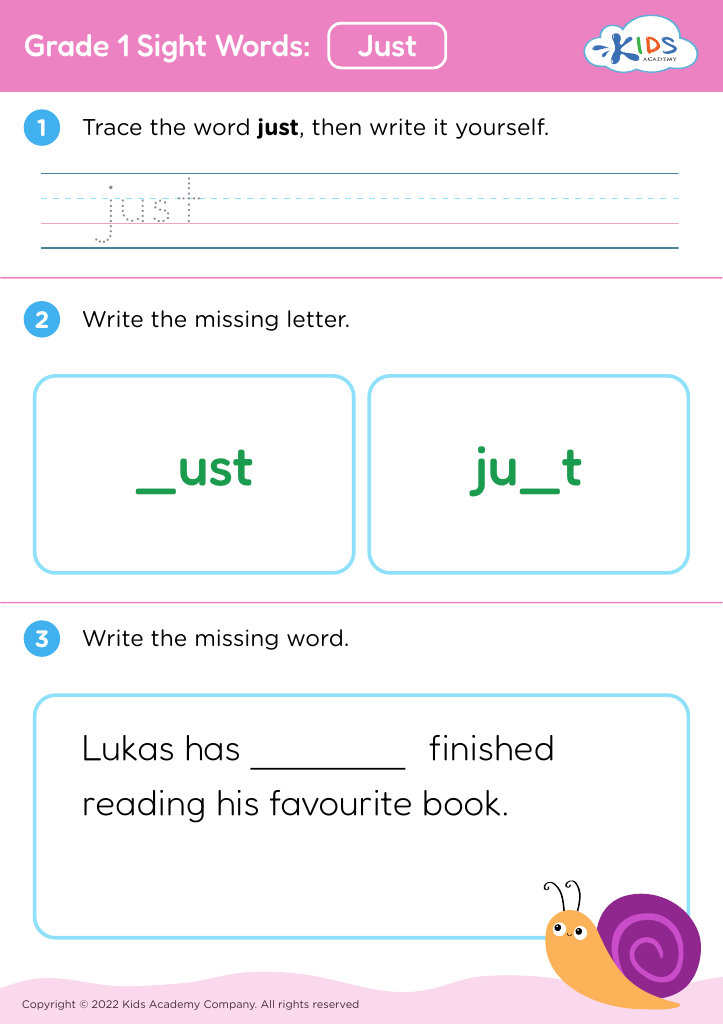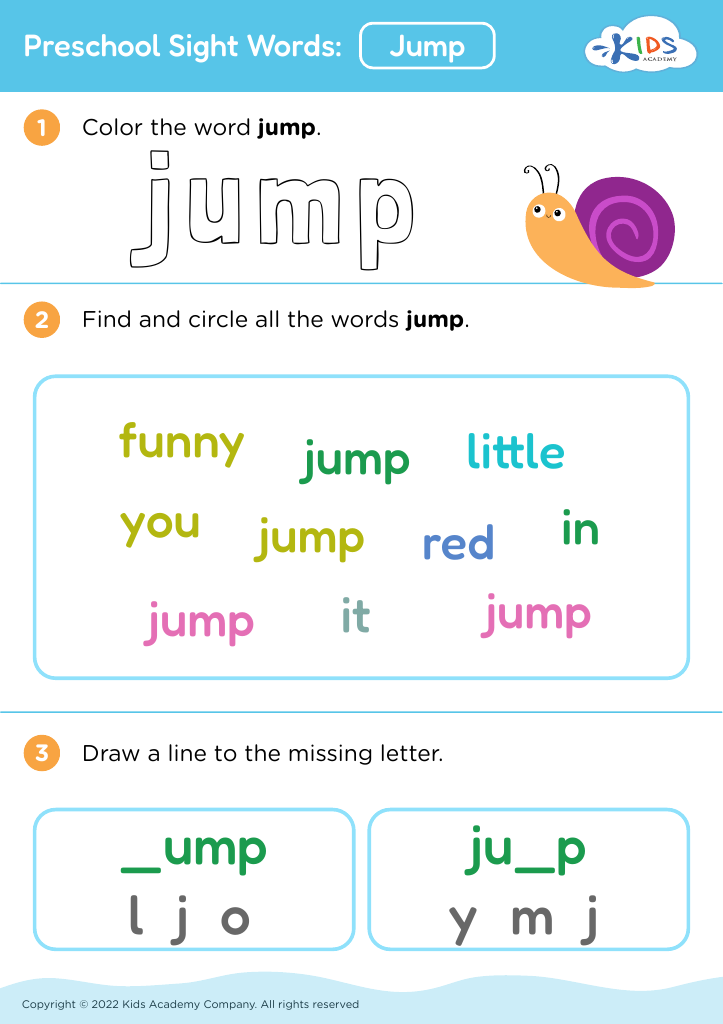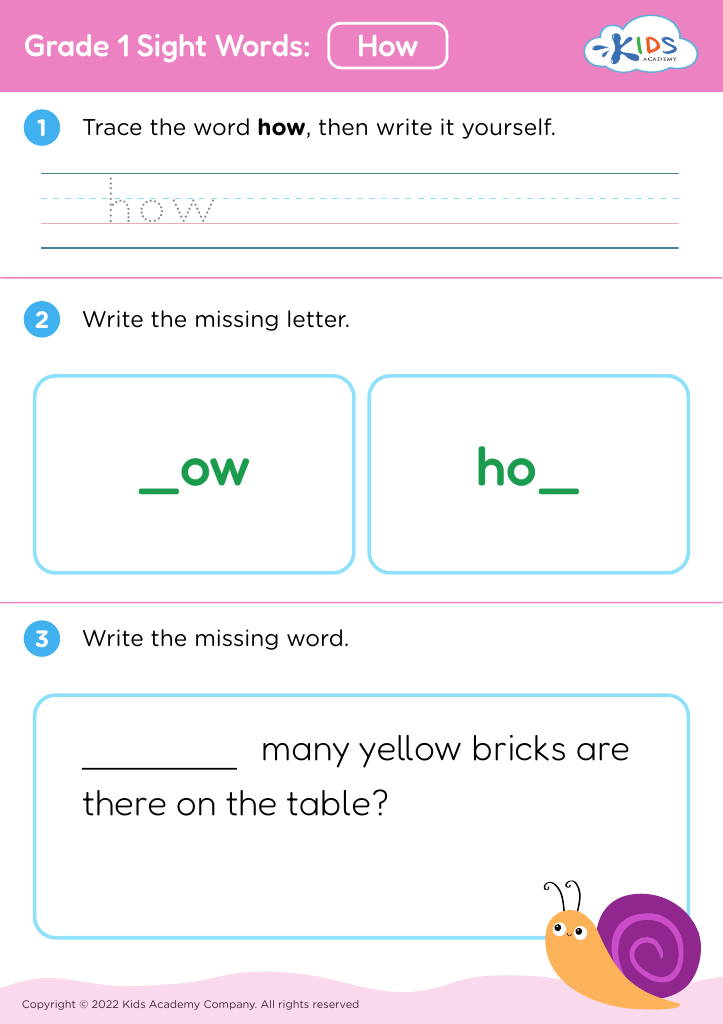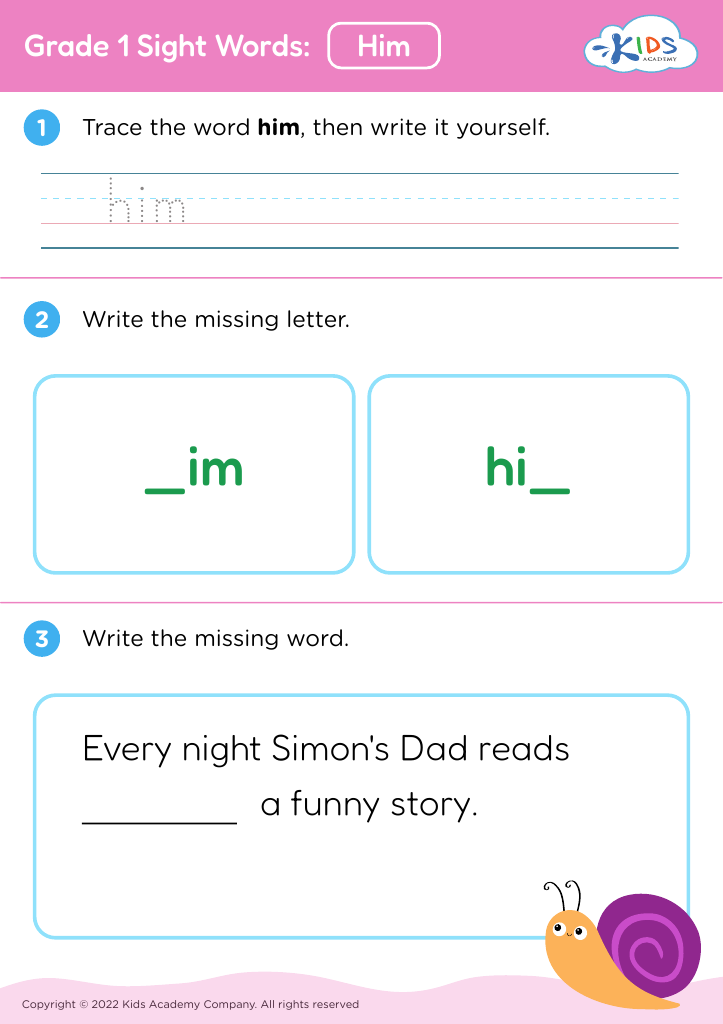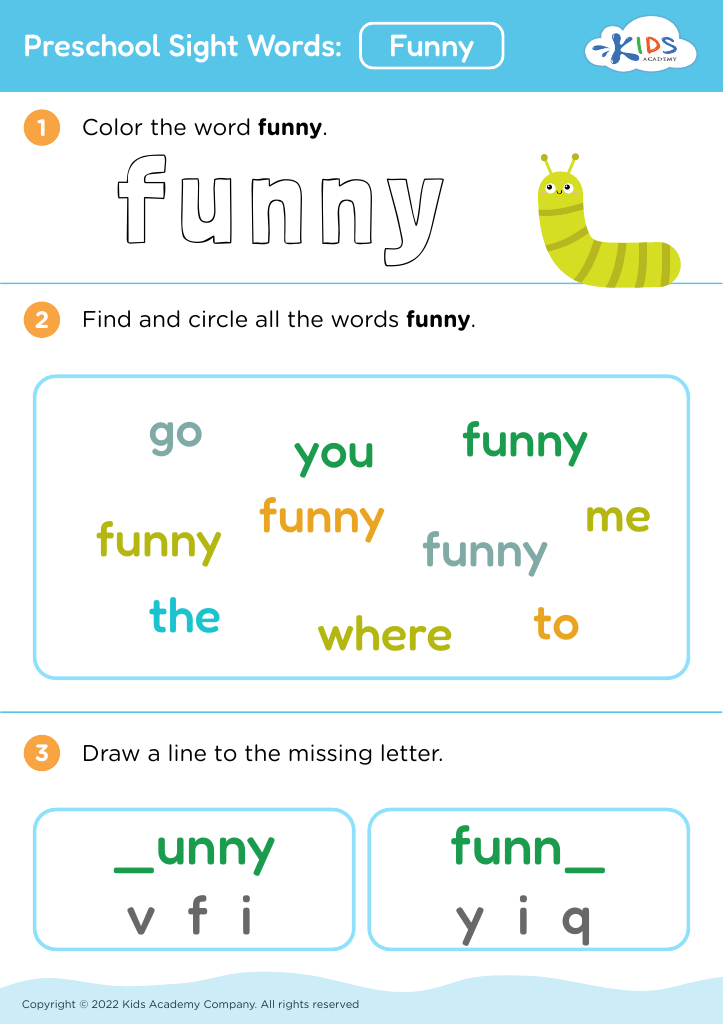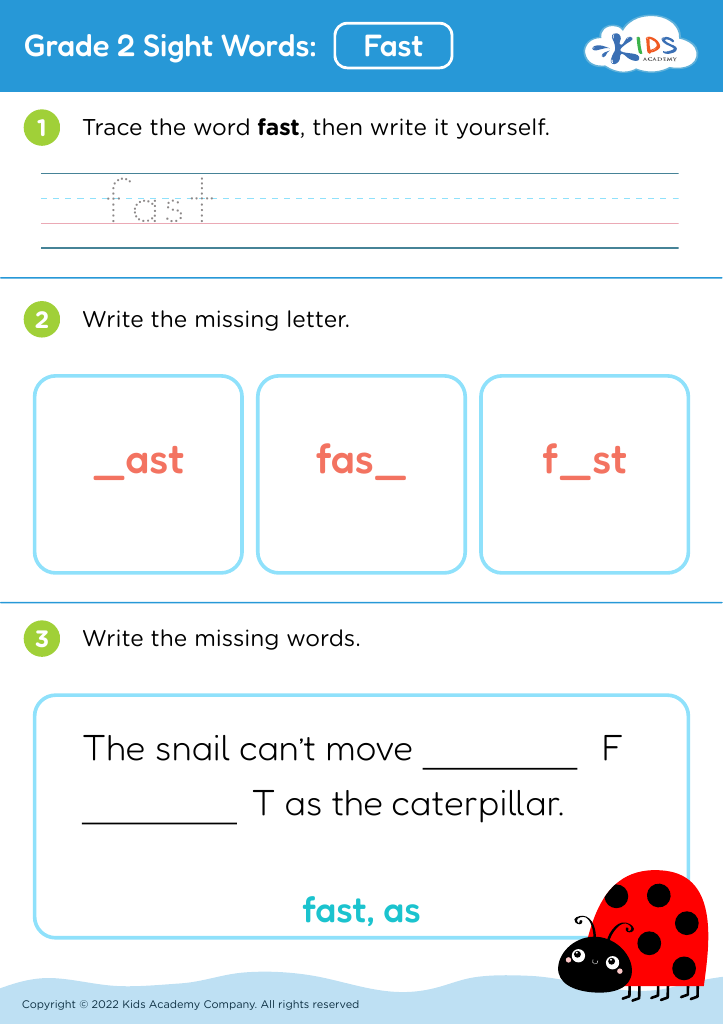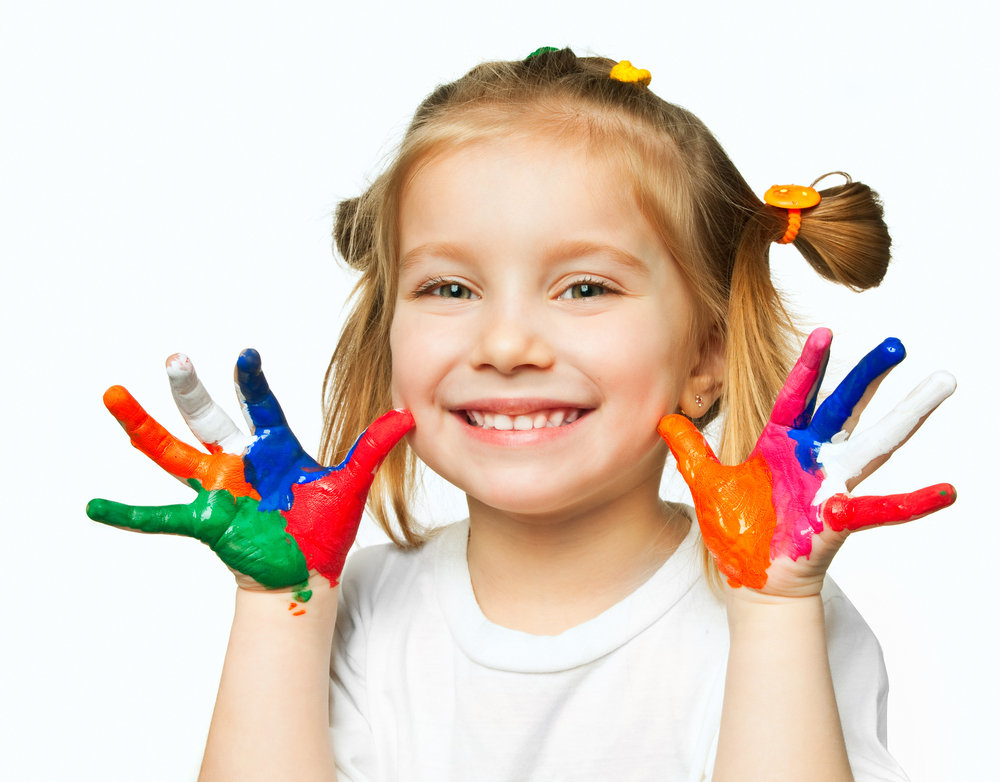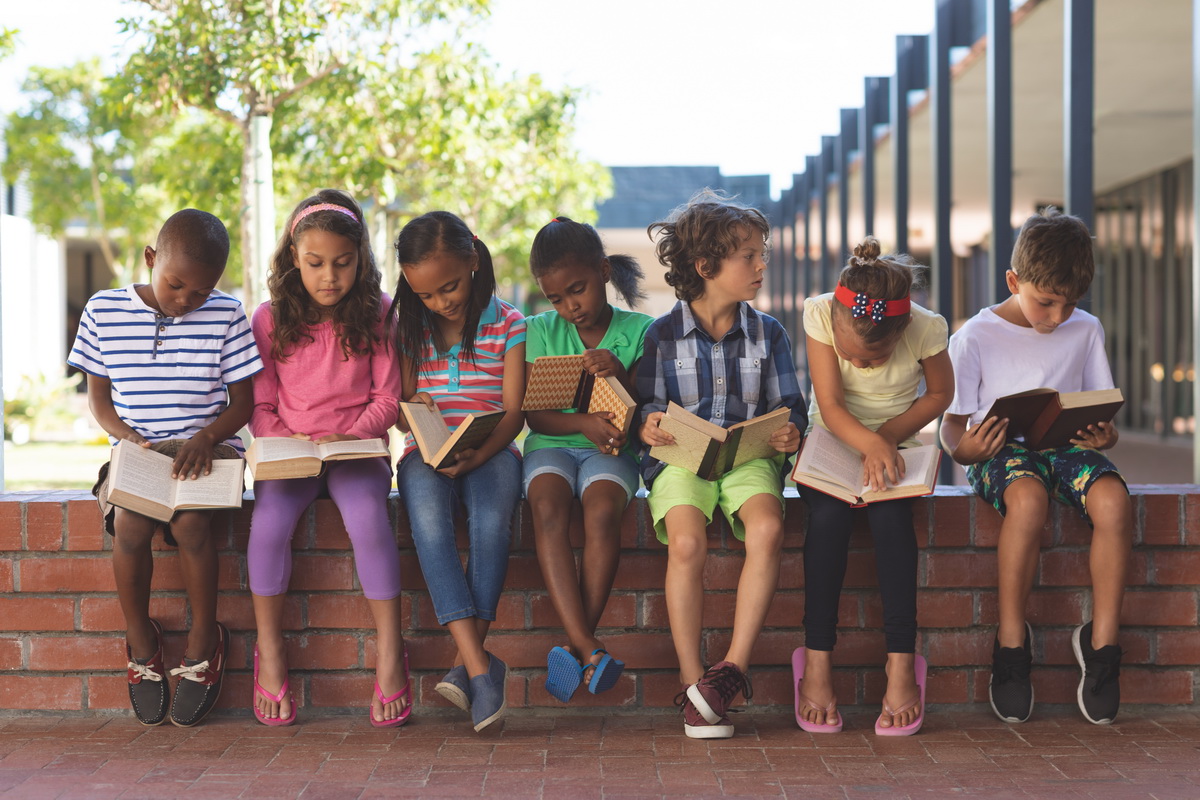Counting skills Reading Worksheets for Ages 4-7
31 filtered results
-
From - To
Explore our engaging Counting Skills Reading Worksheets designed for children ages 4-7! These interactive resources help young learners develop essential counting and reading skills through fun, age-appropriate activities. Each worksheet combines visuals and simple text to reinforce numeral recognition and basic counting concepts while encouraging reading proficiency. Whether practicing by counting objects, completing number sequences, or matching quantities with written numbers, children will enjoy hands-on learning experiences. Perfect for home or classroom use, these worksheets aim to boost confidence in both counting and reading skills, setting a solid foundation for future academic success. Start your child's counting adventures today!
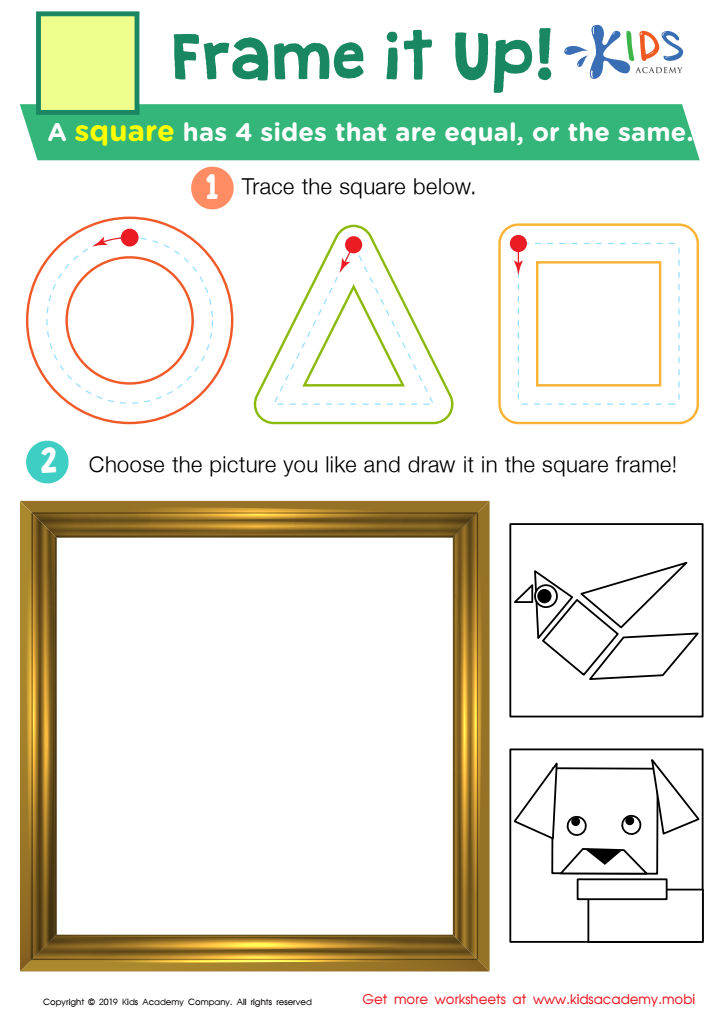

Frame it Up Worksheet
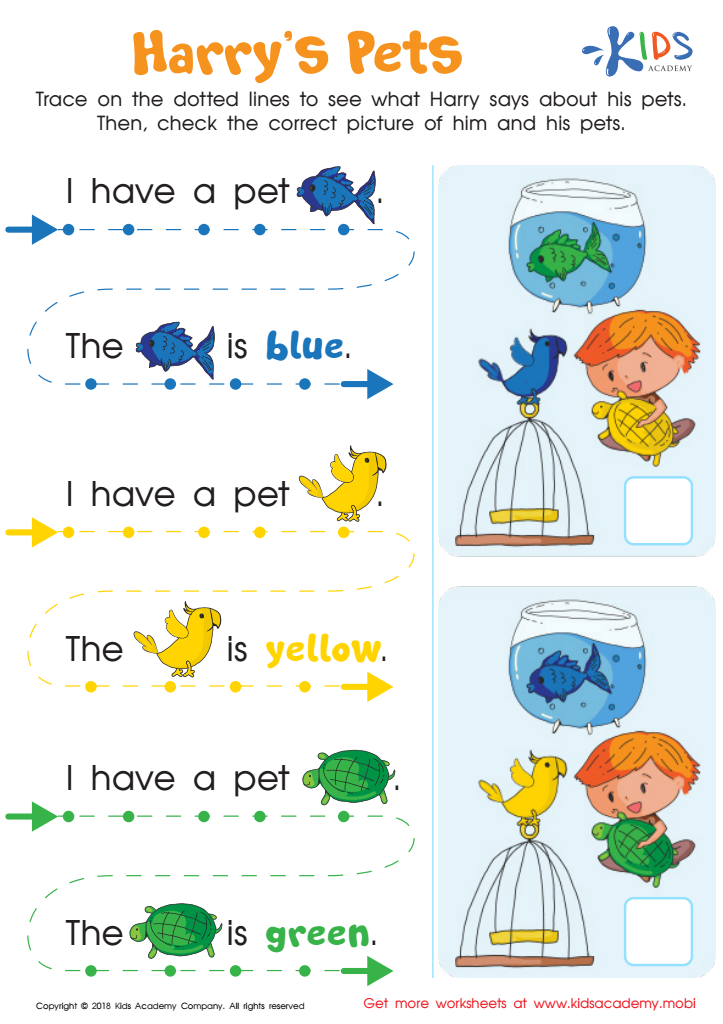

Read from Left to Right: Harry's Pets Worksheet


The Five Little Monkeys Nursery Rhyme Worksheet
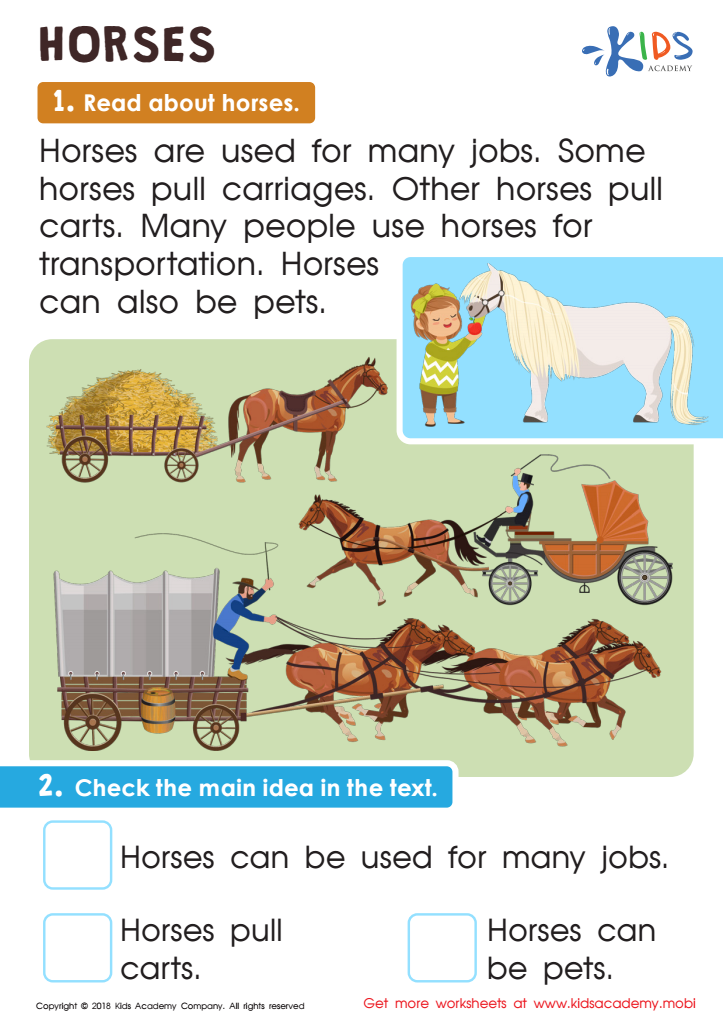

Horses Worksheet
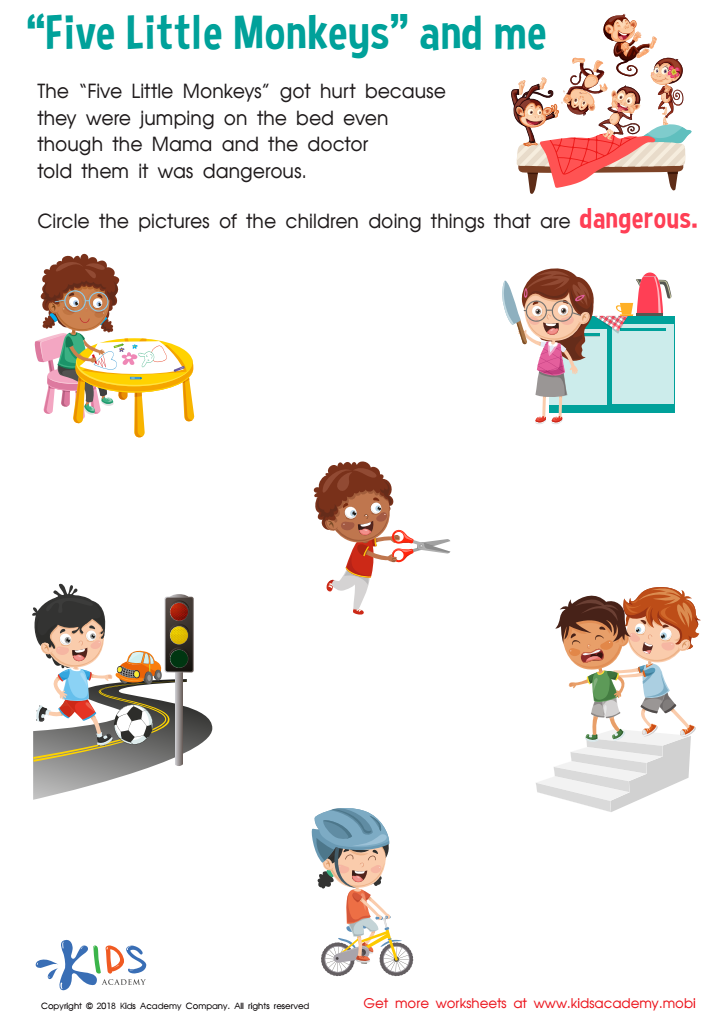

Five Little Monkeys and Me Worksheet
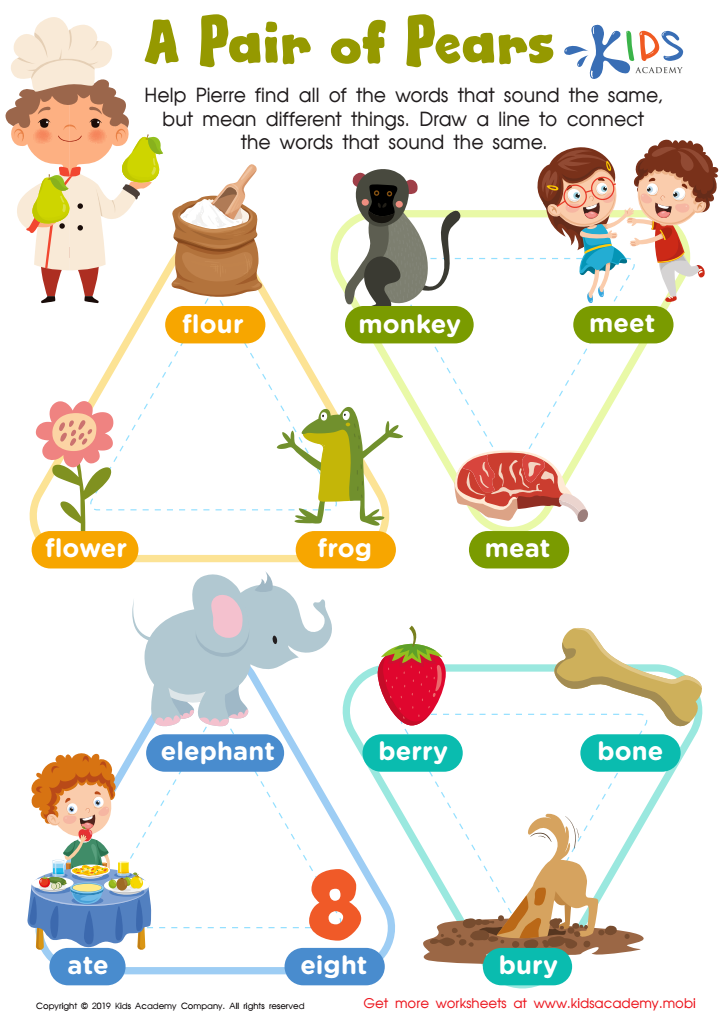

Pair Pears Worksheet
Counting skills and reading ability are foundational elements of early childhood education, particularly for children ages 4-7. Parents and teachers should prioritize these skills as they are crucial for academic success and cognitive development.
Firstly, counting skills foster early numeracy, enabling children to understand basic mathematical concepts. These early lessons in counting aid in developing problem-solving abilities and logical thinking. Counting also lays the groundwork for more complex mathematics learned in later grades. When children grasp the idea of numbers and their relationships, they become more confident and proficient in math.
Reading, on the other hand, enhances language acquisition, vocabulary, and comprehension skills. Early readers develop stronger communication abilities and are better prepared to navigate classroom discussions, assignments, and social interactions. Reading not only supports literacy but also exposes children to new ideas and cultures, promoting empathy and critical thinking.
Moreover, strong counting and reading skills are closely related, as they often stimulate each other's growth. Encouraging counting through reading-related activities—like counting objects in picture books—integrates learning and keeps children engaged. Overall, investing time and resources in these skill sets empowers children to reach their full potential academically and socially, setting a solid foundation for lifelong learning.
 Assign to My Students
Assign to My Students


